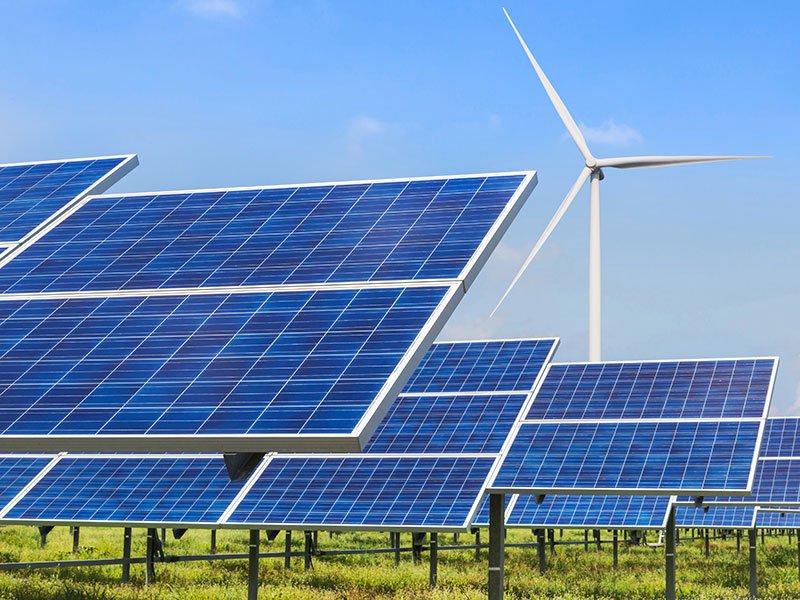The Albanese government has redirected $45.8 million of funding earmarked for international technology partnerships to broader international engagements while establishing new initiatives for microgrid and carbon capture and storage technologies.
Most of the government’s new energy programs are being funded through $746.9 million of savings over four years through the redistribution of funds from programs committed to by the former Coalition government.
In particular, $325.9 million has been reallocated from a number of programs that were budgeted by the Coalition in March this year, but never publicly announced. This includes support for National Energy Market infrastructure, and the cancellation of pre-feasibility studies for natural gas and carbon dioxide pipelines.
Over six years from 2022-23, the technology partnership money will now be spent “to restore Australia’s reputation and increase international engagement on climate change and energy transformation issues”.

Immediate commitments include funding to attend the 27th Conference of the Parties (COP) climate change conference, and to partner with Pacific Island Nations to launch a bid to host the next COP.
Clean energy partnerships and capacity building in the Pacific will also be funded. More broadly, the money will “allow for leadership and engagement in the United Nations Framework Convention on Climate Change…the Quadrilateral Security Dialogue and other international forums”.
The former Coalition government had formed green technology partnerships with Germany, Singapore, Japan, South Korea, India, and the United Kingdom to jointly fund research and development programs.
A new $141.1 million program to support R&D targeting novel carbon capture, storage, and utilisation (CCSU) technologies has been formed. It aims to accelerate the development of novel technologies such as direct air capture, prioritise technology development for hard to abate sectors, and support research opportunities for institutions, as well as industry and international partners.
The new CCSU program will fund demonstration activities, but not commercialisation. The government expects fossil fuel companies already invested in CCSU should be sufficiently capable of commercialising the technology themselves, an official from the Department of Climate Change, Energy, Environment, and Water told InnovationAus.com.
It is being partly funded by a reduction in funding for the former Coalition government’s CCS/CCSU projects and hubs which is being reduced by $50 million to $150 million over ten years. The cut represents a pivot away from grant support for ongoing CCS/CSSU projects.
Microgrids will be rolled out across First Nations communities through a new $83.8 million Australian Renewable Energy Agency program over four years. This is to complement the ongoing $50 million Regional Australia Microgrid Pilots Program and other microgrid support under the Coalition’s Regional and Remote Communities Reliability Fund, exhausting in 2023-24.
Minister for Climate Change and Energy Chris Bowen said that this budget will ensure the long-term reliability and affordability of energy in Australia.
“The Budget proudly builds on the government’s ambitious climate and energy agenda, which has already seen Australia’s Climate Change Bill legislated, putting Australia on track for net zero by 2050. It includes clean energy projects in the regions, skills development, international climate leadership to drive investment, and close engagement with First Nations communities,” Mr Bowen said.
These budget items build on the plethora of energy technology and infrastructure funding already announced by the Commonwealth. Overall, the federal budget contains almost $25 billion in clean energy and renewables commitments.
This includes five initiatives as a part of the Powering Australia plan, predominantly driven by the $20 billion in concessional loans earmarked for the Rewiring the Nation (RTN) program. It was also confirmed that a new Rewiring the Nation Office (RTNO) will manage the program with the Clean Energy Finance Corporation (CEFC) serving as the financing arm.
To set up the RTNO, $18.1 million over four years has been committed while $50.4 million will be spent on RTN-related operating costs for the CEFC.
The Coalition’s program to support development of regional hydrogen hubs, which was allocated $539.2 million in the 2021-22 budget, is being continued, with the Albanese government completing an election commitment by providing an additional $71.9 million for a hub in Townsville.
There is $2.2 million to continue support for a Guarantee of Origin certification scheme to enable the sale of “verified low emissions hydrogen produced from renewable sources, and fossil fuels with substantial carbon capture and storage, domestically and to the world”, according to the portfolio budget statement.
Editor’s note: This story originally stated the federal Budget contains $55 billion in renewables commitments. The story has been updated with the correct figure.
Do you know more? Contact James Riley via Email.

